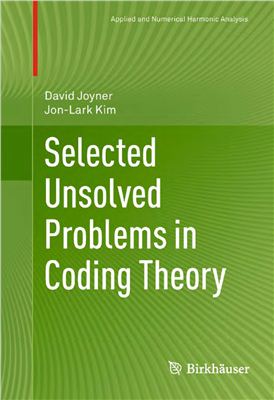Birkhauser Boston, 2011. - 260 pages.
Using an original mode of presentation, and emphasizing the computational nature of the subject, this book explores a number of the unsolved problems that still exist in coding theory. A well-established and highly relevant branch of mathematics, the theory of error-correcting codes is conceed with reliably transmitting data over a ‘noisy’ channel. Despite frequent use in a range of contexts, the subject still contains interesting unsolved problems that have resisted solution by some of the most prominent mathematicians of recent decades.
Employing Sage — a free open-source mathematics software system — to illustrate ideas, this book is intended for graduate students and researchers in algebraic coding theory. The work may be used as supplementary reading material in a graduate course on coding theory or for self-study.
Using an original mode of presentation, and emphasizing the computational nature of the subject, this book explores a number of the unsolved problems that still exist in coding theory. A well-established and highly relevant branch of mathematics, the theory of error-correcting codes is conceed with reliably transmitting data over a ‘noisy’ channel. Despite frequent use in a range of contexts, the subject still contains interesting unsolved problems that have resisted solution by some of the most prominent mathematicians of recent decades.
Employing Sage — a free open-source mathematics software system — to illustrate ideas, this book is intended for graduate students and researchers in algebraic coding theory. The work may be used as supplementary reading material in a graduate course on coding theory or for self-study.

